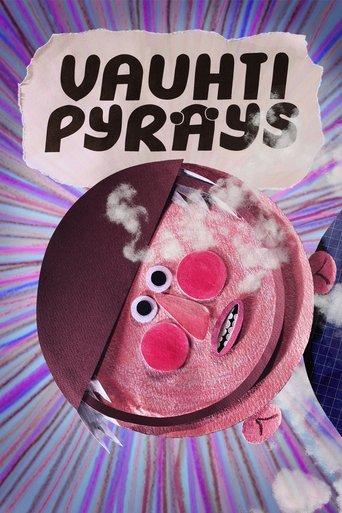
06 Mar 2025

Speeding, of Course
70-year-old Timo makes the most of his short ride to work. Speeding up on a bicycle ends up in a ditch, but the adrenaline rush leaves a feeling of pleasure.
Economy is stranger than fiction
A finnish short film about immigrant people coming to Finland to pick berries.
Themself
Himself
Himself
Himself
Themself
Himself
Herself
Themself
Themself

06 Mar 2025

70-year-old Timo makes the most of his short ride to work. Speeding up on a bicycle ends up in a ditch, but the adrenaline rush leaves a feeling of pleasure.
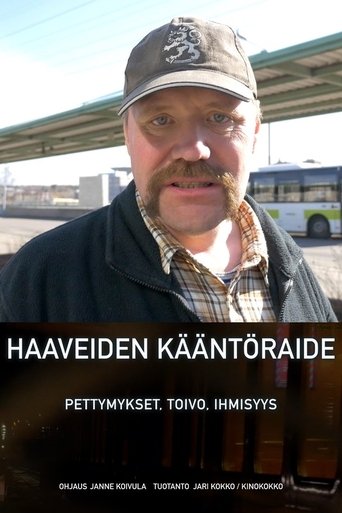
26 Nov 2022

Metro trains disappear on the turning track, only to immediately return on the same route. Tapio (57), Toni (42) and Aksa (60) are also stuck on these tracks. The men meet every morning in the square behind the Herttoniemi metro station, from where they transfer to Vuosaari in the metro's "restaurant car". Men's lives are dominated by alcohol and unemployment. The turning track of dreams follows the lives of Tapio, Toni and Aksa for a year - moments filled with joy, despair, self-destruction and friendship in the metro stations and trains of Eastern Helsinki. It gives voice to those who do not have special human dignity in the eyes of society.
28 Nov 2007
Documentary that shows the changing attitude towards immigrant labor in The Netherlands. The documentary follows three immigrants that arrived in Holland 30 years ago to work in a bakery.
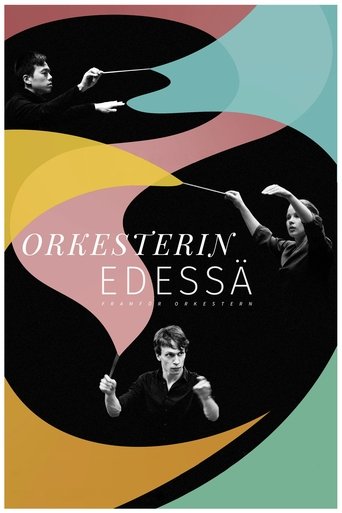
07 Feb 2020

Conductivity is a film about creative leadership told through the story of three young conductors at the prestigious Sibelius Academy in Helsinki, Finland; I-Han Fu (Taiwan), Emilia Hoving (Finland) and James Kahane (France). When stepping on the podium, they are put under a magnifying glass. Conductor training, in essence, is leadership training. The film gives a unique viewpoint to follow the students, as this is the first film about conductor training at the Sibelius Academy.
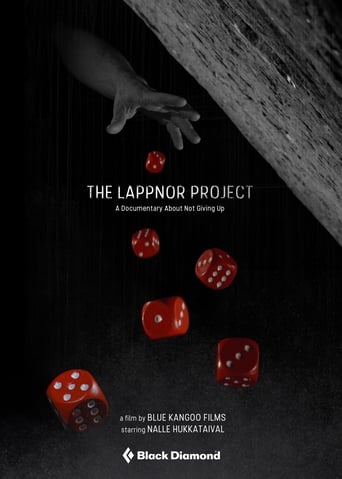
07 Feb 2017

In the Finnish forests was an unclimbed route called the Lappnor project. It was considered to be the hardest climbing route in the world and perhaps impossible for a human. Nalle Hukkataival, a strong Finnish climber took up the challenge. It required almost four years of total commitment and his efforts were followed by hundreds of thousands of climbers around the world. When Nalle finally succeeded, it blew away the whole climbing world like nothing before. The first 9A boulder was climbed! The documentary follows Nalle's journey from the very beginning, all the way to the first ascent almost half a decade later. It captures the incredible dedication that was needed to deal with all the variables and to take that last step to open the next level of climbing.

21 Feb 2020

Images of Argentinian companies and factories in the first light of day, seen from the inside of a car, while the director reads out documents in voiceover that reveals the collusion of the same concerns in the military dictatorship’s terror.
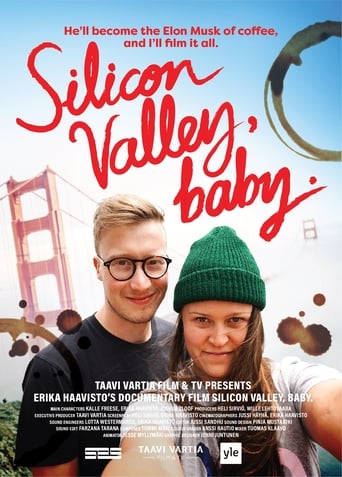
30 Jan 2020

Finnish award-winning barista Kalle Freese travels to San Francisco with his girlfriend to start an instant coffee start-up with big goals. At stake are Kalle's health, relationship and the newly formed start-up.
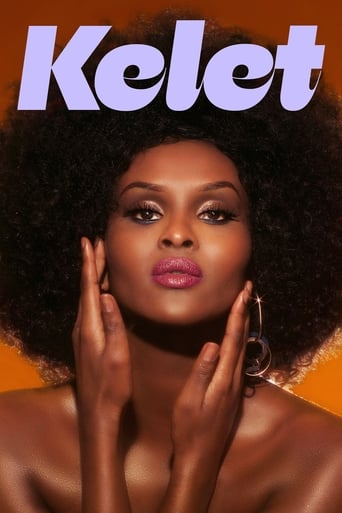
29 Jan 2020

Kelet is a twentysomething black trans woman, whose greatest dream is to be on the cover of Vogue magazine. For the Finnish-born and Manchester-raised Kelet, such models as Naomi Campbell and Iman served as role models giving her strength – and during the darkest times, kept her alive. After coming out, then 19-year-old Kelet was cut off from her family and she moved back to Finland on her own.
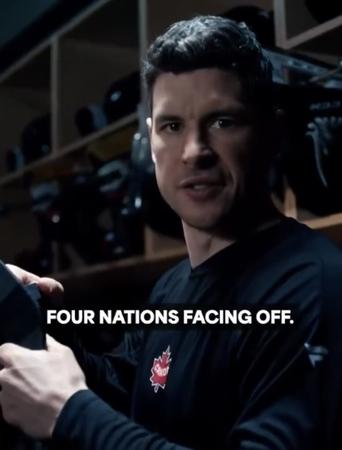
11 Feb 2025

In perhaps the most emotional release of the year, Captain Canada aka Sidney Crosby lets us know that Four Nations are... what? Watch this 1hr long masterpiece, created by FierySharky (Twitter), in order to find out.

29 Apr 2017

On December 6, 1917, Finland declared its independence from Russia. A detailed chronicle of the major events in the history of this young European nation.
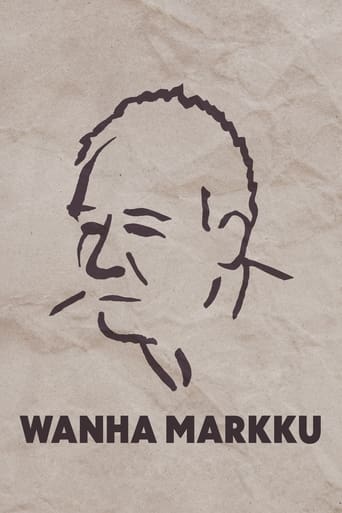
15 Dec 2023

Markku built a house for his family with his own bare hands like a strong man is supposed to do. He worked hard from dawn to dusk, so that his seven children would have a roof above their heads. Unfortunately, the task ended up being too hard and Markku burnt out. One day, he left his family and disappeared abroad. The filmmaker travels to his childhood home to face his father, who he never got to know properly. Together they build a steel gate in front of the unfinished house, and try to create a relationship between each other.

21 Apr 1938

Starting with a long and lyrical overture, evoking the origins of the Olympic Games in ancient Greece, Riefenstahl covers twenty-one athletic events in the first half of this two-part love letter to the human body and spirit, culminating with the marathon, where Jesse Owens became the first track and field athlete to win four gold medals in a single Olympics.
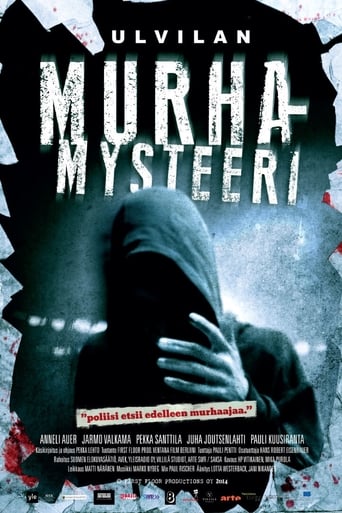
03 Oct 2014

A father of four children gets brutally stabbed several times, with the children present in the family home. During the brutal action, his wife – Anneli Auer – is on the phone to the emergency center. Emergency Call – A Murder Mystery is a documentary film tracking down the story that unfolds after the fatal night. We hear from all emerging sides as the prosecution builds its case against the mother of four. A behind the scenes look into one of the most bizarre unsolved court cases in recent Finnish history.
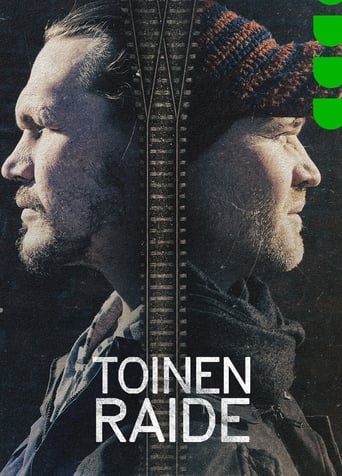
02 Feb 2023

A newspaper clip of a 30-year-old movie makes our middle-aged protagonist in the middle of his peak years to look for his best childhood friend. The journey leads him back to his teenage years in the 1990s depression, over-generational substance abuse and past encounters. This partly essayistic, autobiographical documentary tells the story of friendship and generational experiences while also pondering on the causes and effects of destinies in the judgmental atmosphere of our society.
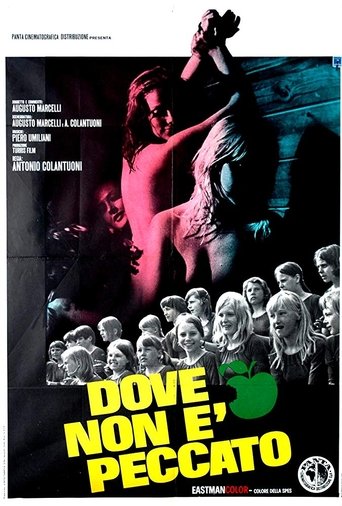
01 Jan 1970

An Italian mondo documentary about Finland. Among other things, it showcases intricacies of local mating culture, sports, Midsummer festivities and sauna.
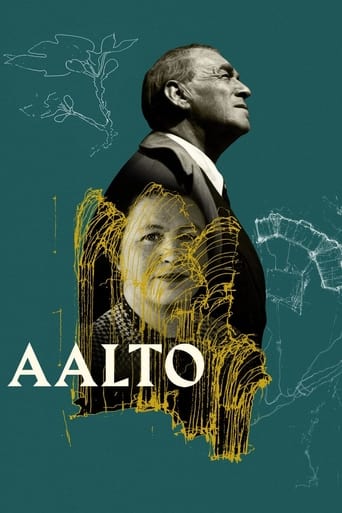
04 Sep 2020

Aalto is one of the greatest names in modern architecture and design, Aino and Alvar Aalto gave their signature to iconic Scandic design. The first cinematic portrait of their life love story is an enchanting journey of their creations and influence around the world.
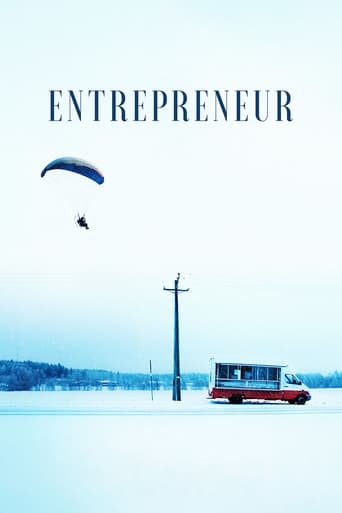
07 Mar 2018

Entrepreneur is a universal nature documentary about Finnish entrepreneurs. This warm and carnevalistic film portrays humans in the middle of ordinary everyday survival. The main protagonists come from two totally different kinds of landscapes, from two diffent time zones. There is a scenery of contemporary modern society and just a few hundred kilometres away we find a rural and nostalgic universe with forgotten people and land.Our first protagonists are Fellini-like family, going from village to another, trying to sell meat from a small meat truck and also run a tiny funfair business. The father, the mother and their four children are working together and trusting only in themselves, not in the help of society. While countryside family is counting coins, the other pair of entrepreneurs, the two well-educated women from the capital area, have invented a vegetable protein product called Pulled Oat, and have become millionaires. But have they also made a world a little bit better?
01 Jan 2002
A documentary about Áillohaš (Nils-Aslak Valkeapää), a musician, painter, and poet of the Sámi people in Finland.
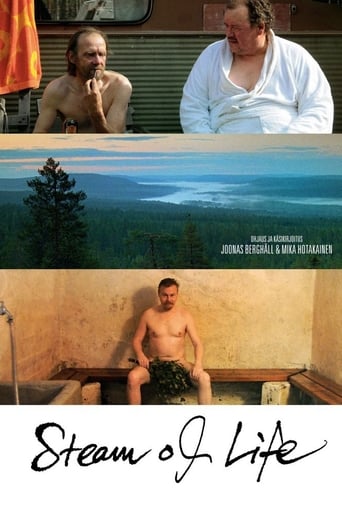
26 Mar 2010

Finnish men in sauna, speaking straight from the heart.
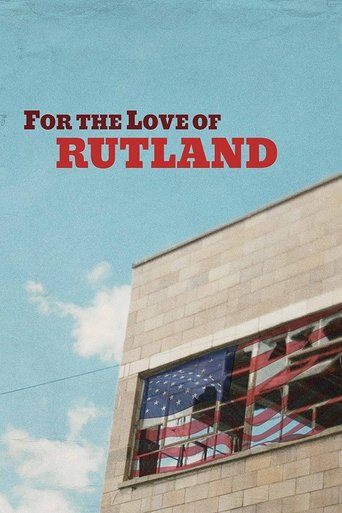
28 May 2020

After an attempt to bring Syrian refugees into the predominately white New England town of Rutland, Vermont, unleashes deep partisan rancor, a longtime Rutland resident emerges as an unexpected leader in a town divided by class, cultural values, and divisive politics.